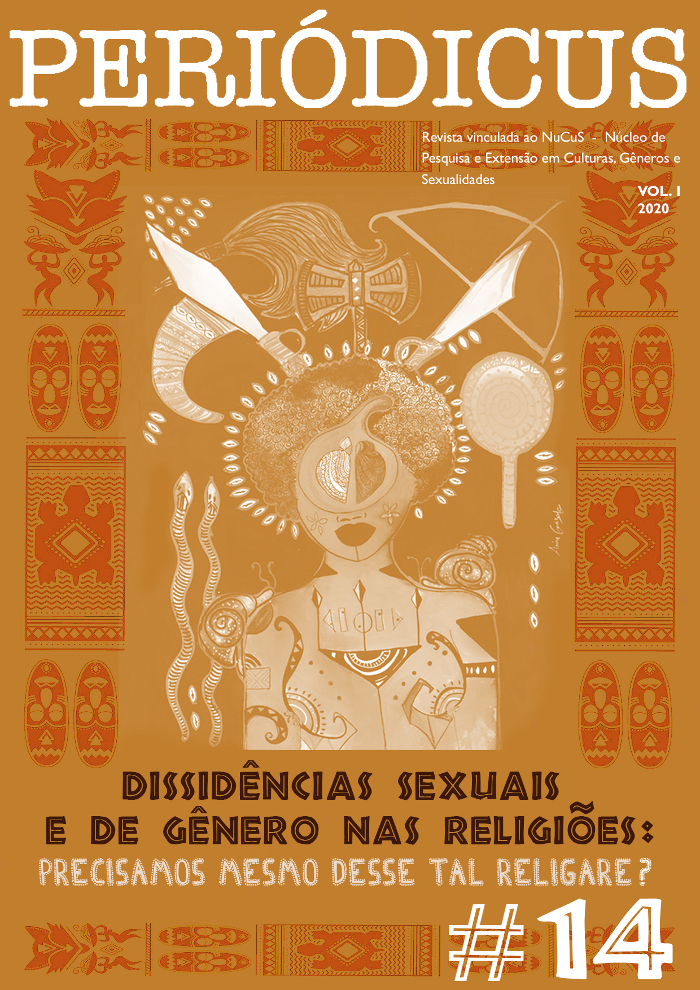Theological Perversion: Notes on Marcella Althaus-Reid's Indecent Theology
DOI:
https://doi.org/10.9771/peri.v1i14.37042Abstract
Abstract: An analysis of the relationship between hegemonic Christian religion and sexual dissidents exposes anumber of hermeneutical disputes, of which Marcella Althaus-Reid emerges as a prominent writer of Queer
Theology in Latin America. The objective of this article is to present Marcella Althaus-Reid's theological proposal,
using her method of indecientamiento, which breaks with the Christian moralizing tradition by proposing what the
theologian calls Indecent Theology. This article applies her theology to de/reconstruct the Christian Eucharist.
Marcella Althaus-Reid’s indecent theology is essential when critiquing the interplay between Christianity, the Bible,
and sexuality.
Keywords: Queer theology. Inclusive theology. Christianity. Bible. Eucharist.
Downloads
Downloads
Published
How to Cite
Issue
Section
License
Copyright (c) 2021 Ana Ester Pádua Freire

This work is licensed under a Creative Commons Attribution-NonCommercial 4.0 International License.
Authors who publish in this journal agree to the following terms:
Authors retain copyright and grant the journal the right of first publication, with the work simultaneously licensed under a Creative Commons Attribution Noncommercial License that allows the work to be shared with acknowledgment of authorship and initial publication in this journal, but prohibits commercial use.
Authors are authorized to enter into separate additional contracts for non-exclusive distribution of the version of the work published in this journal (e.g., publishing in an institutional repository or as a book chapter), with acknowledgment of authorship and initial publication in this journal.
Authors are permitted and encouraged to publish and distribute their work online (e.g., in institutional repositories or on their personal website) at any point before or during the editorial process, as this can generate productive changes and increase the impact and citation of the published work (see The Effect of Open Access).








